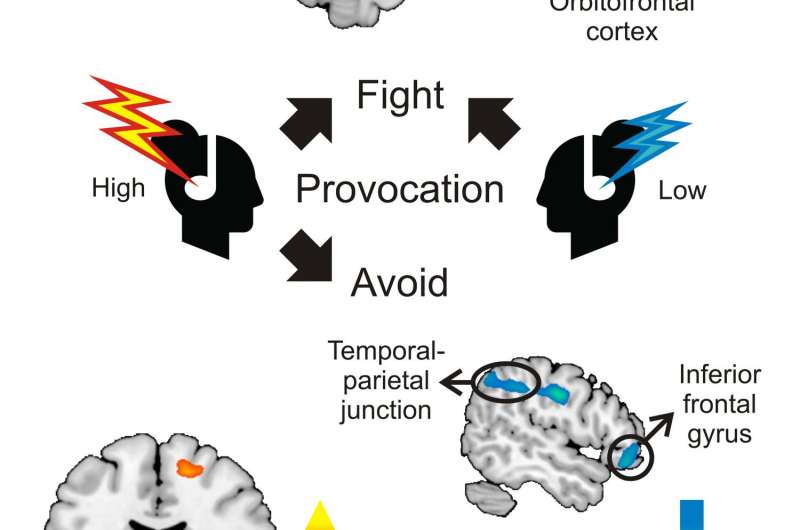The brain's fight and flight responses to social threat

A study published in eNeuro exploring the neural correlates of the 'fight-or-flight' response finds that people who choose to flee perceive a greater threat, which leads them to mentally and behaviorally disengage from the situation.
Macià Buades-Rotger and colleagues designed a Lord of the Rings-themed experiment in which 36 female participants competed as Frodo against two confederates playing as Sauron and Saruman in a reaction time task. Participants could choose to avoid a limited number of encounters with their opponents by "putting the Ring on."
If they chose to stay and fight, they had to select the intensity of a sound blast (retaliation) that would be directed toward their opponent if the participant won the task by having a quicker reaction time. The task was set so that participants lost two-thirds of trials, and each opponent gave either high or low sound blasts.
The authors found that brain regions associated with thinking about the mental state of others were engaged when deciding to flee. However, when facing the highly provoking opponent, the "flight" response was associated with reduced activity in these regions and increased activity in the amygdala, indicating increased threat detection.
More information: Avoidant responses to interpersonal provocation are associated with increased amygdala and decreased mentalizing network activity, eNeuro, DOI: doi.org/10.1523/ENEURO.0337-16.2017
















